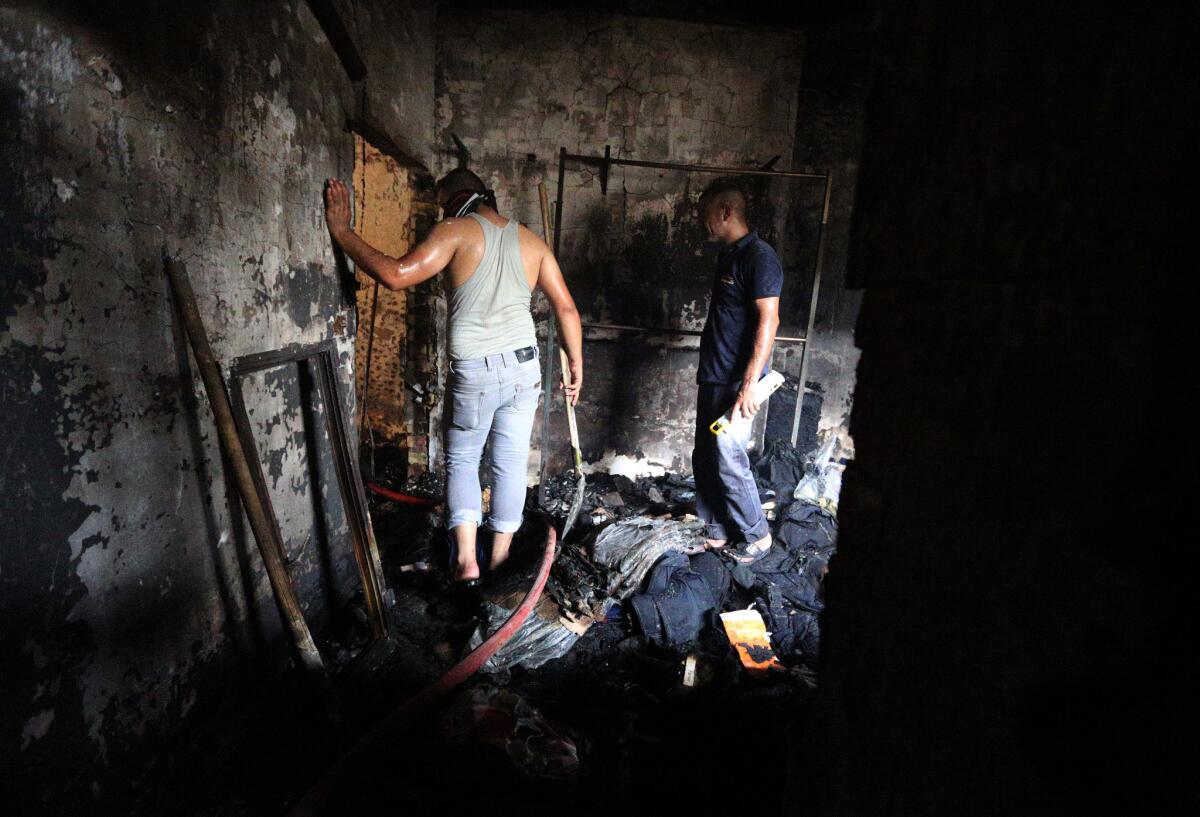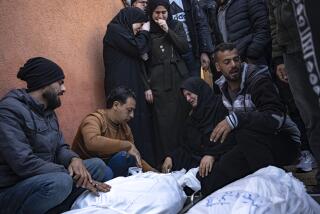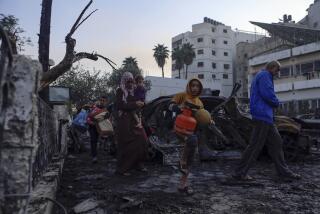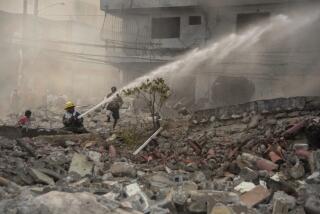Iraq: Death toll from Islamic State-claimed bombing climbs to 157

- Share via
Reporting from BAGHDAD — The death toll from the truck bombing at a bustling Baghdad commercial street rose to 157 on Monday, Iraqi authorities said, as Prime Minister Haider Abadi ordered new security measures in the capital.
The attack early Sunday, claimed by the Islamic State group, was one of the worst single bombings in Iraq over more than a decade of war and insurgency. It underscored the group’s ability to strike the Iraqi capital despite a string of battlefield losses elsewhere in the country and fueled public anger toward the government.
The suicide bomber blew up his explosives-laden vehicle in Baghdad’s mostly Shiite Karada district, a favorite destination for shoppers — especially during the holy month of Ramadan. The streets and sidewalks were filled with young people and families after they had broken their daytime fast.
Police and health officials said Monday that the toll had reached 157, but that the number was likely to increase even more as rescuers were still looking for missing people. Officials said at least 12 people are confirmed missing. At least 190 people were wounded, the officials said, speaking on condition of anonymity as they were not authorized to talk to reporters.
A string of smaller bombings elsewhere in Baghdad on Monday killed 10 people and wounded 31, the officials said.
In a statement issued Sunday evening, Abadi ordered security forces to stop using a repeatedly-discredited hand-held bomb detection device. He also ordered the reopening of an investigation on the procurement of the British-made electronic wands, called ADE 651s.
In 2010, British authorities arrested the director of the British company ATSC on fraud charges, prompting Iraqis to open their own investigation into alleged corruption. Iraqi authorities made some arrests, but the investigation went nowhere and the device remained in use.
On Monday evening, Associated Press reporters saw a number of the devices still being used at checkpoints around the capital.
Abadi also ordered that X-ray systems be installed at the entrances of provinces. He demanded the upgrade of the capital’s security belt, increased aerial scanning and stepped-up intelligence efforts.
Iraqi and foreign officials have linked the recent increase in Islamic State attacks —especially large-scale suicide bombings — with the string of battlefield losses the extremist group has faced over the last year.
Iraqi security forces, supported by U.S.-led coalition airstrikes, have retaken the cities of Tikrit, Ramadi and Fallujah.
At the height of the extremist group’s power in 2014, Islamic State had deprived the government of control of nearly one third of Iraqi territory. Now the militants are estimated to control only 14%, according to the prime minister’s office. Islamic State still controls Mosul, Iraq’s second-largest city.
ALSO:
A cloudburst triggers flash flooding in Pakistan, leaving 29 dead and dozens missing
Divided over immigration, one of Britain’s most diverse cities voted for ‘Brexit’
Elie Wiesel ‘died as a hero in Israel,’ but it wasn’t always that way
UPDATES:
10:30 a.m.: This article was updated with a new death toll.
This article was originally published at 6:08 a.m.
More to Read
Sign up for Essential California
The most important California stories and recommendations in your inbox every morning.
You may occasionally receive promotional content from the Los Angeles Times.










